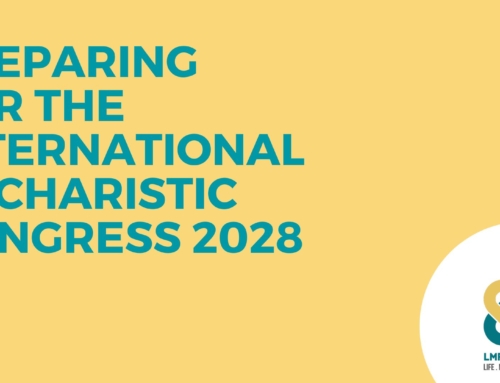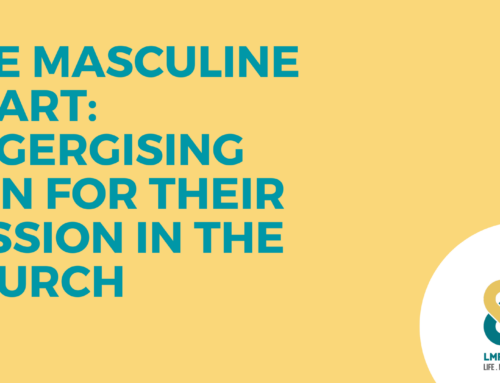Author: Monica Doumitt
The final report from the Synod on the Family was released over the weekend.
At present, only the Italian version of the document is available, although some websites have provided English translations of the more “contentious” sections.
With all of the coverage from the Synod, a person might be forgiven for thinking that the report dealt only with the matters of same-sex attracted persons and the sacramental life of divorced and civilly remarried Catholics.
But the final report contains a lot more, much of it rich and profound.
Here’s “The non-authoritative list of the 20 most important items in the Synod final report which have nothing to do with homosexuality or divorce and remarriage (based on a Google translation)”. [Editor note: we deserve points for honesty in advertising!]
- Some beautiful words about the family
The Synod Fathers begin by expressing that, as pastors, they care about the lives of families and want us to know their desire to listen to the realities of people’s lives and accompany them in their concerns, giving them courage and hope. - The effect of marginalisation of public expressions of faith on the family
The Synod Fathers noted that in some regions of the world, the reduction in public expression of religion affects the witness and mission of the Christian family. - Many reasons for the falling birth rate
The Synod Fathers speak of the challenge of the falling birth rate, and note that it is caused by various factors including industrialisation, the sexual revolution, the fear of overpopulation, economic problems, the growth of a contraceptive mentality, abortion and a consumerism which dissuades people from having children in order to preserve their present lifestyle. - A contradiction in how family is viewed
The Synod Fathers point out that as a society, we appear to have a contradicting view of family. On the one hand, family life is held in high esteem and seen as the most rewarding way to live, and on the other, it is viewed as imposing excessive expectations which are not in keeping with an individualistic culture. - A contradiction on how motherhood is viewed
Similarly to the above, the Synod Fathers also point out a conflicting view of motherhood. On the one hand, motherhood is portrayed as an exploitation of women and a restriction on their full realisation. On the other hand, motherhood is a way to affirm the woman, and so a child must be obtained by any means possible. - Gender ideology
The Synod Fathers speak of increasing gender ideology, and suggest that a society without gender differences empties the anthropological foundation of the family. - The impact of limited employment on families
The Synod Fathers speak about the socio-economic pressures on families, which include either unemployment or the need for people to find work far away from their family, with the lengthy travel times taking them away from their family. The Synod Fathers call for social structures which support the family, particularly given the great contribution of family to society and the way the family performs tasks essential to the common good. - Care for the elderly
The Synod Fathers also turn their attention to those members of our families in particular need, beginning with the elderly. They speak of the “most serious and urgent need” to preserve the link between generations, and to perceive the elderly as an asset rather than a burden. This is critically important in the face of threats to family life in the form of euthanasia and assisted suicide. - Care for the widowed
The Synod Fathers speak about the need to care for those who have been widowed. They note that while the lives of some are filled with the love of remaining family, some do not have the support of family and need the care of the Christian communities. - Care for those with special needs
The Synod Fathers speak with “great admiration” of families who accept a child with special needs with love. They tell us that these families are a valuable witness of fidelity to the gift of life. They call on the Church to be a home for families with disabled people, and remind us that we need to pay special attention to those disabled persons who outlive their parents. - A word to unmarried persons
The Synod Fathers then speak about the contribution of unmarried persons to the Church. They tell us that their contributions are often overlooked, leaving them feeling isolated, but remind us that their dedication is “glorious”. - Care for migrants and refugees
In noting the plight of migrants, and the families sometimes separated through migration, the Synod Fathers remind us that showing warmth and acceptance to migrants is a task which “directly concerns the Christian community.” - The dignity of women
The Synod Fathers speak of the various attacks on the dignity of women, noting that sometimes they are penalised for motherhood, and other times they are discriminated against for infertility. They speak of violence experienced by women, and include abortion, forced sterilisation and the new reproductive technologies as forms of violence against them. - The dynamic of mercy and truth
The Synod Fathers remind us that the desire for God and the desire to feel fully a part of the Church also exist in those who have experienced failure or who are living in difficult situations. They speak of the dynamic of mercy and truth, which requires pastoral care which takes concrete situations into account. - Indissolubility as gift
The Synod Fathers speak about how the wounding of the original union of man and wife manifested in different ways: polygamy, divorce and subordination of women to man, all of which existed in the time of Jesus. They remind us that Jesus not only restored the original divine plan, but led God’s people to a “new fulfilment.” In this context, they tell us that the indissolubility of marriage is not intended as a burden imposed on people but as a gift to them. The true meaning of mercy, they say, is the restoration of the Covenant. Indissolubility is a reminder that God keeps His Covenant and His promise of love to us, even when we fall. - Family ties are not absolute
Citing the Catechism, the Synod Fathers remind us that family ties, while fundamental, are not absolute because there is also a call to a universal brotherhood in the Church. - The mutual gift of Church and family
The Synod Fathers tell us that, through the Sacrament of Matrimony, the family becomes a “good” for the Church and the Church a “good” for the family. They also speak of Priesthood and Marriage as the two vocations to love, and encourage each to accept the other as a gift from God. - The importance of marriage preparation
The Synod Fathers tell us that marriage is more than a cultural tradition or legal agreement, but a real call from God which demands careful discernment. They tell us that marriage preparation should be an integral part of pastoral care, noting that it requires better synergy between the various pastoral areas. It should include, they say, education in how to forgive and an affirmation that a relationship can be healed. They also tell us that pastoral accompaniment needs to continue after the celebration of the Sacrament. - Affirmation of teaching on openness to life
The Synod Fathers affirm “the beauty and truth of an unconditional openness to life as what human love needs to be lived to the full.” They speak of the need to promote the Church documents which promote the culture of life, particularly Humanae Vitae and Familiaris Consortio, and remind us that the choice of responsible parenthood presupposes the formation of conscience to ensure it is free from “subjective arbitrariness.” - The need for ministry to broken and at-risk families
The Synod Fathers ask for a ministry dedicated to those whose marriages have broken down, including counselling centres and specialised mediation in dioceses. They call for the Christian community to call on the separated spouses to treat each other with respect and mercy, particularly for the good of children. In relation to single-parent families, they tell us that the parent who lives with the child must find support within the Church, regardless of the cause of their situation.
As you can see, there is much more to the Synod report than the “contentious” issues. It is well worth a read, because it shows us that the Church is very much in touch with the realities of family life.
Monica Doumit, Catholic Talk contributor





